
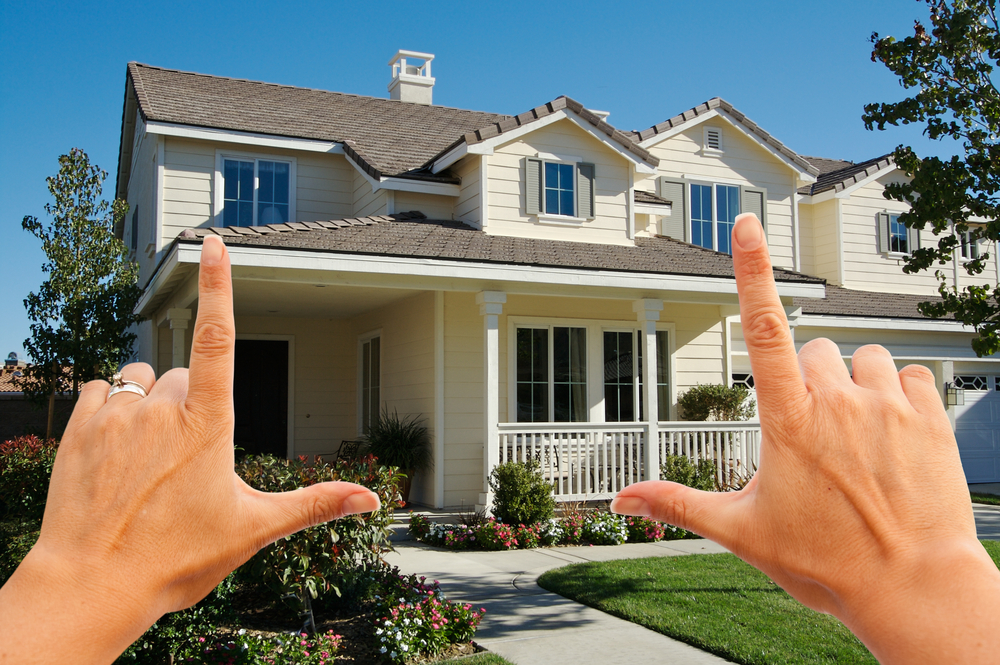
Buying a home may be a dream, but the initial purchase is only the introduction to that dream. There's always something about your house that could be a little better, a little closer to perfect. Now, with a little planning, you can bring your home closer to your dream of perfection.
Increasing the value of your home is easier than you think.
Focus on these elements that prospective buyers favor when purchasing a new home.
Plan your remodel.
Whether you just bought a house or you have lived there for a while, the fastest way to increase your home's value is by making a plan. You will fare better if upgrades are made intentionally and not on impulse. Home improvement projects cost about 20 to 25 cents on the dollar. The other 75 to 80 cents spent go directly back into the home through increased value.
Start slowly. It's a marathon, not a sprint. If your home is new, get to know it. If you have already been there a while, get started. List the things you want to change and the updates you would like to make. Don't worry about organization, just write it all down. Take a guess on how long you may want to live in the house. If you're planning on selling, talk to your realtor and make a selling plan.
Take the list and categorize by how much it may cost, including your time and money. Be realistic. It's OK to list an outdoor pool with a waterfall, but keep your financial picture in mind.
Once you have a categorized list, take a look and prioritize what is a real "must have" and what is more of a dream. See if you can come away with a reasonable balance.
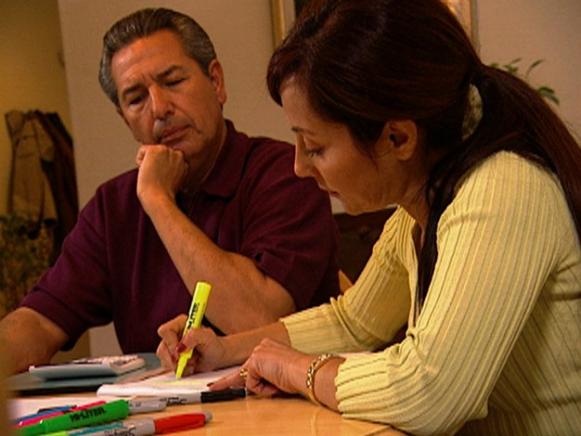
Once you have made a plan, do research or talk to a realtor to see what sort of return those improvements may bring. Some improvements will add considerably more value to your home than others.
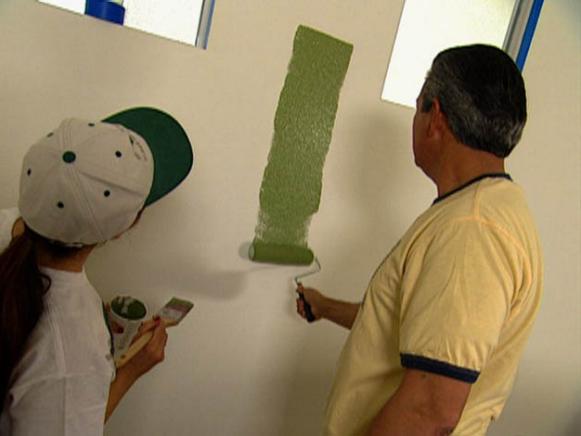
Tackle one room at a time.
Make the commitment to tackle one room at a time. Whether it's a simple coat of paint or knocking down a wall, by tackling one room at a time you keep projects achievable.
Make a list of all the things you dream about doing, break your list down into categories based on cost and write down how much time each project may take. What this does is help you get results. If you only have a day or a weekend, choose a project that fits within your time-frame, comfort level and financial commitment.
If you set out to paint a living room wall on Saturday and you know what it will cost in time and money, it gets done. By the end of the day, you have a stylish upgrade that will add value to your home. By strategizing, you will see your dreams take shape as you transform each room before moving on to the next.
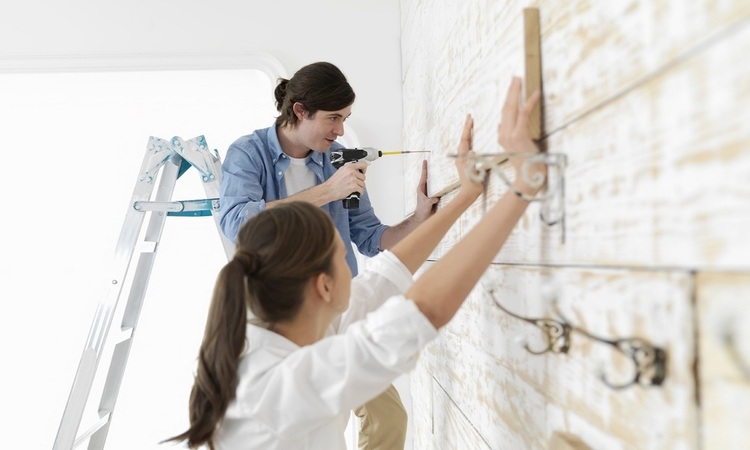
Are you torn between improving your home's decor, versus making upgrades you know will increase your home's resale value? Many homeowners are surprised to hear that doing a little bit of both will actually pay off.
Small improvements can really pay off.
Start by making two lists — upgrades for your home value and upgrades just for you. Upgrades for your home may consist of replacing old faucets, permanent lighting and doors. Upgrades for you are furniture, artwork and window treatments. Gone is the dartboard approach to picking projects and wondering if what you are doing is really making a difference. With this plan, you will see real progress.
If you have spent a bundle on making an upgrade you can make small changes for the next couple of months. Upgrade a couple of electric plugs or buy a small lamp. Stick to one upgrade per month and you will be happy with what you see.
Clean your house now for profits later.
If you were a buyer, would you choose the house that is slightly dingy or the home down the street that is clean and welcoming?
By making a clean house a priority, you do several things at once. First, you stay on top of maintenance issues, spotting potential problems before they become expensive ones. Secondly, you don't allow dirt and junk to build up over time. Things like mold can become a nuisance if allowed to spread unchecked. Finally, a clean house is healthier for you and your family.
Remember, de-cluttering is a form of cleaning. Just as dirt builds up, so does clutter. Don't waste money moving your junk around. Get rid of it now. When it's time to sell you will feel confident about what you are presenting to the buyer.
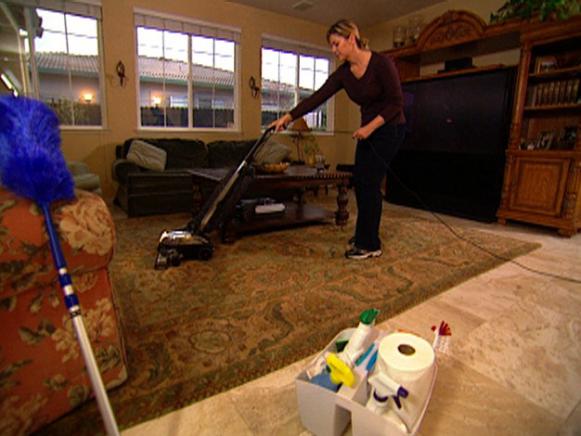
If your house is on the market, a bright and sparkly home can attract buyers like a magnet. A house can never be too clean.
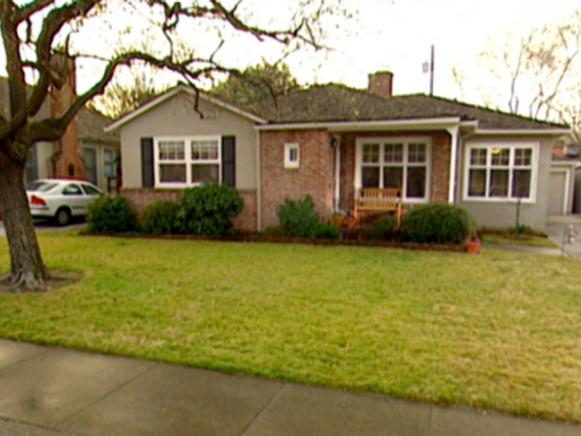
Want a fresh perspective on the value of your home? Walk across the street, turn around and ask yourself, "Does my house have curb appeal?" Does your home look attractive, welcoming and structurally sound at first glance?
Curb appeal counts.
Make a list of ways to enhance the positive and eliminate the negative. If you have a nice curvy walkway, accentuate it with flowers or lanterns. If the first thing a visitor sees is your big wide garage, try to guide their eyes into a beautiful front yard, or paint your front door red to guide the eye there. These things add value.
Take a digital photo and look at your home in black and white. When the color is removed, the truth comes out. That is where you see the cracks in the walls and the glaring flaws.
Keep things clean and tidy. Talk to your neighbors because this affects them too. Curb appeal doesn't stop at your property line. Your home will be more valuable if you live in a place where everyone pays attention to appearance.
Host a neighborhood cleanup party. Team up with neighbors to mow lawns and trim hedges. See who wants to go in on a few flats of border flowers. By adding curb appeal to your entire neighborhood, you will all boost your home values.
When you're looking at your curb appeal, don't forget the side and rear views. Buyers walk around and peek over fences.
Upgrade the kitchen.
- Do a mini-remodel. Change the paint. It sounds simple, but it works. You can also paint a faux-wood finish onto your cabinets. This looks just like cherry.
- Add a splash of color with a new backsplash. New tile is attractive. Home improvement stores teach classes on this.
- Go stainless steel. The cold feel of steel is a hot ticket item for buyers. Transition your appliances as they wear out and go with a similar metallic look in your light switches.
- Make your kitchen rock with a rolling island.
- Hang a pot rack with fresh new pots, pans and a hanging wine bottle holder. With the rolling island, your kitchen will catch every buyer's eye. You can take some of these things with you to your new home.
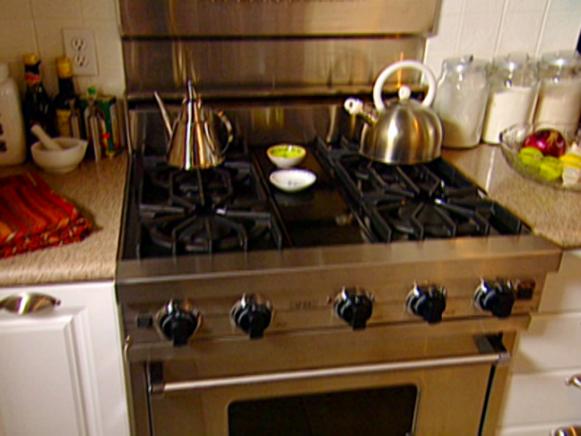
Ask any real estate expert what the No. 1 upgrade with the greatest return is, and the answer will be the kitchen.
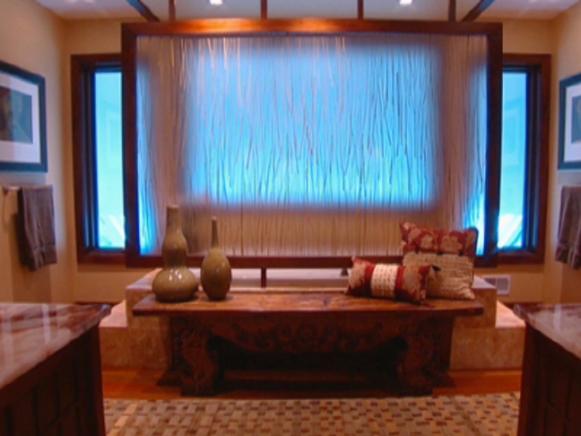
Of all the rooms in your house, the bathroom is the workhorse. There is lots of wear and tear, so you want to keep it functioning well and make good looking upgrades along the way.
Beautify your bathroom.
- Focus on your faucet. Bathrooms are not utilitarian anymore. People like to feel relaxed, like they are in a spa. Drop-sinks are old news, people want the under-mount sinks.
- Go granite or marble with your countertops. If you are toying with the granite idea, your bathroom counter is most likely smaller than your kitchen counter and less expensive. This is a great place to start your first granite project.
- Nix the overhead lighting in favor of wall mounts to add warmth and value to your bathroom. Make sure that around your mirror you have even lighting with no side shadows.
- Heated floors attract buyers like bees to honey.
- Upgrade your bath area. With an 85 percent return, install a shower with body sprays and stone surround tile. If you are not selling right away, you will feel like you are in a Zen garden every time you step into your bathroom.
- Keep it clean. Dirt and grime can become embedded in bathroom surfaces very quickly. Freshen it up with new grout.
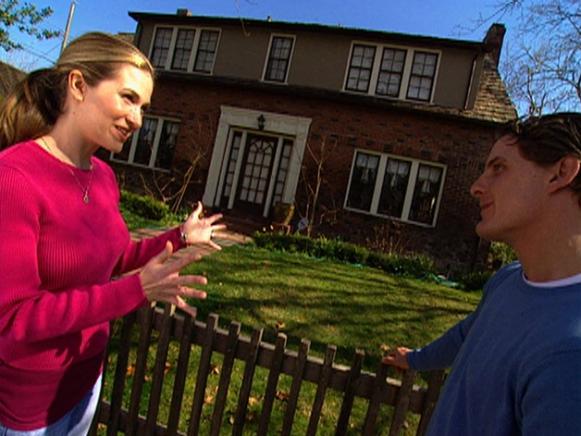
You go to the doctor for physical exams and take your car in for checkups. Why not do the same for your house? A home inspection can be a valuable thing, whether you are selling or not.
Hire a certified home inspector.
If you are selling, get your own inspector before you put your home on the market. The last thing you want is to have a contract on the table, only to hear the inspector has found dry rot. If you know in advance, you can take care of it. If a home inspection turns out well, it is likely the buyers will feel good about their purchase and not ask for costly fixes or concessions.
Why bother having an inspection if you're not worried about selling? Keep those records to show buyers you have maintained your house all along. Also, time is on your side. You can fix problems on your terms for far less than you will likely spend if you wait. Think of it like a physical that will only keep your home healthy and more valuable.
If you get a clean bill of health, it helps you make decisions. You can pick your home projects and spend your money with confidence.
Current Home Evaluation
Looking for Investment Properties?
Let us know what you need


©2020. All rights reserved